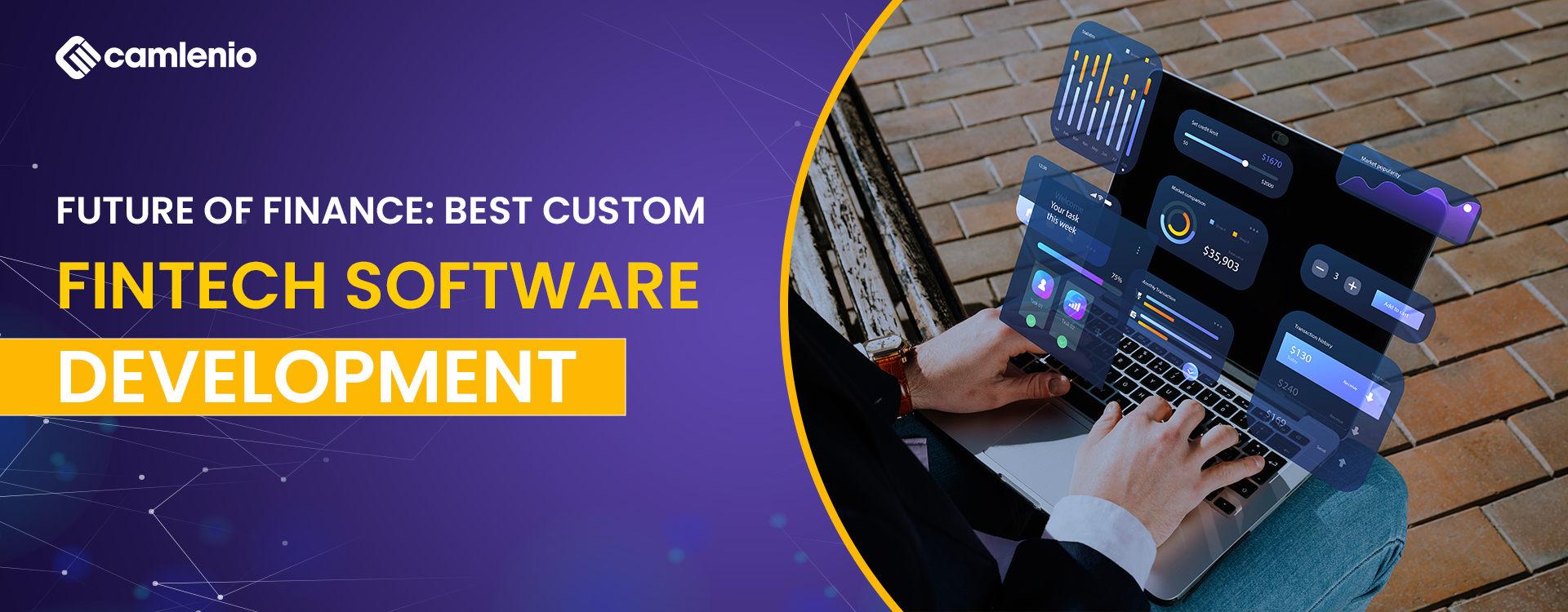Future of Finance – Fintech Software Development
In today’s digital age, the finance industry is undergoing a rapid transformation, driven by advancements in technology. One of the key drivers of this change is the development of custom fintech software. These innovative solutions are reshaping the way financial services are delivered, offering enhanced efficiency, security, and user experience. In this blog post, we will explore the future of finance and discuss the best custom fintech software development practices.
Introduction to Custom Fintech Software
Custom fintech software refers to tailor-made software solutions designed specifically for financial institutions to meet their unique needs and challenges. Unlike off-the-shelf software, custom fintech software is personalized and offers greater flexibility, scalability, and security. It enables financial institutions to streamline their operations, enhance customer experience, and stay competitive in the digital age.
Read More: https://camlenio.com/blogs/best-travel-booking-software-company/
Benefits of Custom Fintech Software Development
- Enhanced Security: Custom fintech software provides advanced security features tailored to the specific needs of financial institutions, ensuring that sensitive financial data is protected from cyber threats.
- Improved Efficiency: By automating manual processes and integrating various systems, custom fintech software helps financial institutions streamline their operations and improve overall efficiency.
- Personalized Customer Experience: Custom fintech software allows financial institutions to offer personalized services to their customers, enhancing their overall experience and satisfaction.
- Scalability: Custom fintech software is designed to grow with the business, ensuring that it can adapt to changing needs and handle increased volumes of transactions.
Trends in Custom Fintech Software Development
- Blockchain Technology: The use of blockchain technology in custom fintech software is increasing, as it offers enhanced security, transparency, and efficiency in financial transactions.
- Artificial Intelligence (AI) and Machine Learning (ML): AI and ML are being increasingly integrated into custom fintech software to improve fraud detection, risk management, and customer service.
- Big Data Analytics: Custom fintech software is leveraging big data analytics to gain valuable insights into customer behavior, market trends, and risk management.
- Mobile Payments: The rise of mobile payments has led to the development of custom fintech software that is optimized for mobile platforms, providing customers with convenient and secure payment options.
Impact of Custom Fintech Software on the Finance Industry
Custom fintech software is reshaping the finance industry in several ways:
- Improved Efficiency: Financial institutions are able to automate manual processes, reduce operational costs, and improve overall efficiency.
- Enhanced Customer Experience: Customers now have access to personalized services, faster transactions, and more convenient banking options.
- Increased Competition: The rise of custom fintech software has led to increased competition among financial institutions, driving innovation and better services for customers.
- Regulatory Challenges: Financial institutions need to comply with strict regulatory requirements when implementing custom fintech software, which can be challenging.
Challenges in Implementing Custom Fintech Software
- Cost: Developing custom fintech software can be expensive, especially for smaller financial institutions with limited budgets.
- Integration: Integrating custom fintech software with existing systems and processes can be complex and time-consuming.
- Security: Ensuring the security of custom fintech software and protecting sensitive financial data from cyber threats is a major challenge.
- Regulatory Compliance: Financial institutions need to comply with various regulatory requirements when implementing custom fintech software, which can be complex and time-consuming.
Future Prospects of Custom Fintech Software
The future of custom fintech software looks promising, with continued advancements in technology driving innovation in the finance industry. Key areas of growth include:
- Artificial Intelligence: AI will play a key role in custom fintech software, enabling more personalized services, better risk management, and enhanced fraud detection.
- Blockchain Technology: Blockchain technology will continue to be integrated into custom fintech software, offering enhanced security and transparency in financial transactions.
- Mobile Payments: The popularity of mobile payments will continue to grow, driving the development of custom fintech software optimized for mobile platforms.
How to Choose the Best Custom Fintech Software Development Company
- Evaluate Experience: Look for a company with a proven track record in developing custom fintech software for financial institutions.
- Consider Expertise: Choose a company with expertise in the latest technologies, such as blockchain, AI, and big data analytics.
- Check References: Ask for references and case studies of previous projects to ensure the company has successfully delivered similar solutions.
- Assess Security Measures: Ensure the company follows best practices in cybersecurity to protect your sensitive financial data.
Conclusion
Custom fintech software development is reshaping the finance industry, offering financial institutions the opportunity to enhance security, improve efficiency, and provide personalized services to their customers. As technology continues to advance, the future of finance looks promising, with custom fintech software playing a key role in driving innovation and growth.
FAQs
- What is custom fintech software development? Custom fintech software development refers to the process of creating tailor-made software solutions for financial institutions to meet their unique needs and challenges.
- Why is custom fintech software important? Custom fintech software is important because it enables financial institutions to streamline their operations, enhance security, and provide personalized services to their customers.
- What are the key benefits of custom fintech software? Some key benefits of custom fintech software include enhanced security, improved efficiency, personalized customer experience, and scalability.
- What are some trends in custom fintech software development? Trends in custom fintech software development include the use of blockchain technology, artificial intelligence, big data analytics, and mobile payments.
- How can financial institutions choose the best custom fintech software development company? Financial institutions can choose the best custom fintech software development company by evaluating experience, considering expertise, checking references, and assessing security measures.


